My sister, Bella, has (or had?) this blog party thingy going on over at her blog. I'm not going to do the whole thing - I'm lazy that way. But I am going to do a blog post from #9 on her list:
My favourite book-to-musical adaption.
I'll be honest, guys.
Phantom is my favourite. I basically grew up with that. It was the first musical I ever listened to. However, I feel like I harp on that all the time, so I'm NOT going to do The Phantom of the Opera. I'm going to do my second favourite.
The Secret Garden.
Actually, the way I came to this musical is kinda funny. I've always loved the Phantom. Always, always, always.
Sarah Brightman, Michael Crawford, and Steve Barton are IT! (Sorry, I go for passionate musicality over straight-out pitchy passion - Sierra, Ramin, I like you, but c'mon, you're professionals. Can't you sing the notes on
key?) However, my best friend in the whole wide world is a fan of Les Mis, and we share music back and forth. I had her listen to the
Original Cast Recording of Phantom, and she let me listen to the
Complete Symphonic Recording of Les Mis, with Gary Morris as Veljean, Philip Quast as Javert, Michael Ball as Marius, and the
one and only Anthony Warlow as Enjolras. (You notice I only mention the male singers. That's because Les Mis, like all the rest of the musicals out there, tend to go in for busty-voiced singers, or high-pitched vibratos, and I hate it.) I liked Les Mis, though the lack of musicality always annoyed me. However, I was quite wildly fond of
Anthony Warlow's fabulous interpretation of Enjolras, and I WAITED for those moments when his voice would swoop in and save the day (and the musical).
I do not know why they stuck that
ugly brown wig on his head, though.
I started digging, to see what other songs he sang, and discovered he was the lead singer of Jekyll and Hyde on the Concept Album (which, by the way, is the ONLY version to listen to. David Hasselhoff is a huge and crying letdown over Anthony Warlow's incredible delivery as Jekyll). Then, I realized
Anthony Warlow had CDs!! Surprise, surprise, right? I got his Best of Act One CD, and on that CD was a song called "Lily's Eyes" that he sang with Philip Quast.
This is probably my favourite version of this song, even though
the Original Cast is my overall favourite. Anthony Warlow and
Philip Quast as Archibald and Neville Craven are amazing.
I researched to see which musical this came from, and found THE SECRET GARDEN.
I am fond of the book. I never much cared for the pantheistic element to the story, where the garden becomes this sort of godlike entity and is responsible for all the good that happens to the characters. But I have always liked to read the story, so I can forgive a lot.
In the musical, I feel a lot of that mysticism is muted. Instead, the garden seems more like a refuge, a place that Mary makes her own, and it's her love of the garden that lends it that sense of magic. Also, Daisy Eagan as Mary is gold. And also, Rebecca Luker. 'Nough said 'bout that.
What I love about the musical version of the Secret Garden is that fabulous blend of music and dialogue that The Phantom of the Opera captures so well, and which (IMHO) many musicals lack. For instance, in Phantom, when characters read the notes received from the Phantom, the way the music is written is basically how one would inflect their voice while reading aloud.
In Les Mis, it's like this clunky crash of chords that I just don't get.
Secret Garden emulates Phantom in the sense that it IS very musical, every bit of it, dialogue and chorus and all. There is not a bit that sounds dissonant or ill-fitted.
The best version is the Original Broadway Cast Recording, starring Mandy Patinkin as Archibald Craven, Rebecca Luker as Lily, Daisy Eagan as Mary, and James Cameron Mitchell as Dickon. (I have a fondness for the Australian version that I don't own, because Anthony Warlow is Archibald Craven and Philip Quast plays his brother Neville, and they have FABULOUS voices, but the rest of the cast is lacking. Seriously lacking. Trust us, precioussss.)
The Secret Garden is the story about
Mary Lennox, a little girl born in India and raised more by servants and housemaids than by her parents. She is sent to live with her uncle,
Archibald Craven, in his house in York, after an outbreak of cholera kills her parents and pretty much the entire household, leaving her the sole survivor.
At the beginning of the story, Mary really is an unpleasant child, sickly and foul tempered. Her mood is not helped by Uncle Archie, a brooding, "miserable hunchback" who wanders through the house, still grief-struck over the death of his wife, Lily, who died about 10 years ago.
The house is also haunted by far-off cries, which Mary is forbidden to seek out. Instead, when her maidservant, Martha, tells her about a secret garden, Mary decides to find it.
Her hunt for the garden sends her roaming the moors outside the manor. The exercise and fresh air invigorates her. She becomes friends with an old gardener, Ben Weatherstaff, and Martha's brother, Dickon, as well as a robin redbreast that lives in the secret garden.
With the robin's help, Mary finds the entrance to the garden, and she and Dickon begin to secretly tend the neglected flowers. But not even the garden can help her ignore the distant, mysterious cries. Flagrantly disregarding orders, Mary hunts out the source of the cries and discovers Colin, Uncle Archie's invalid son who everyone in the household believes will die an early death. Since Archie cannot bear to look at his son, being reminded too acutely of Lily, Colin has been hidden away, his every whim granted by the servants that wait on him. Fantastically spoiled, Colin meets his match in Mary, who refuses to put up with his tantrums.
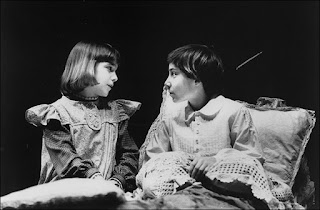
Believing Colin's sickness to be more in his mind, Mary thinks that the surest cure for Colin is for him to spend time in the secret garden. The good air works the same rejuvenating magic it did on Mary, and Colin begins to improve. Eventually they are discovered, but Archie is so grateful to what Mary has done for Colin that he finally accepts her and loves her as his own, and Mary finds the home she never had with her own parents.
Take a listen to this version of I HEARD SOMEONE CRYING (The voice at the very beginning doing the vocalise is Rebecca Luker. Come on. You can't beat THAT voice.)
I love the absolute crystalline quality Rebecca brings to Lily's voice. It is so soaring, clear and gorgeous, and what I desperately look for in most musicals these days. I can't stand the belting Broadway sound (Idina Menzel, for example. It's not pretty. I'm sorry. Not a fan.)
Me when listening to Idina's voice...
I also love Mary's voice. She sounds like a little girl. She doesn't sound trained. I can't
stand it
when little girls have these ridiculous vibratos and don't sound like little girls. I like that Mary has a natural sound to her voice. It's another one of those things I desperately look for in musicals, and never find. (Darn it, Cosette, you're like... six! Can't you
sound like it?!)
This quartet is really, really good. I love when musicals have these songs where each singer has a different line to sing, and then everyone sings together, and it's just like... *shiver*. (Skip about 20 seconds into this one. This QUARTET is fabulous and the blend of voices is perfect.)
I love how, in this song, Lily doesn't sound angry. I've heard so many versions where the female singers are like, "No, me!" and they just over-sing the men, and it, again, drives me crazy. Here, Lily just sort of soars over them by virtue of being soprano, and she sounds more like a loving Lily, not a confrontational Lily. She sounds like she truly loved Archie, not like she married him to spite her sister, Rose, which is how a lot of Lilys sound. (Why are singers so angry in their performances? Can't we have gentle solos? When did passion in music become rage?)
One really cool thing the writers did with this musical, is they took a lot of the
people who died - Lily, Mary's parents - and made them ghosts, and these "ghosts"
came to life in picture frames. Which is why Lily is sitting in this picture frame here.
And also, in my opinion, this is the best Dickon ever. Just, don't even try. This WINTER'S ON THE WING is the bestest version ever.
James Cameron Mitchell NAILS Dickon.
My first introduction to Mandy Patinkin was as Inigo Montoya in The Princess Bridge. Finding out he could sing was like discovering Michael Crawford (whom I had only known from the corny, crazy 1981 movie CONDORMAN) was the Phantom. It blew my mind.
Mandy Patinkin is STELLAR as Archibald Craven. He plays it so well, as the melancholy man who is suffering from the crushing loss of losing the love of his life, and having a sickly young son whom he believes is going to die as well. This song, RACE YOU TO THE TOP OF THE MORNING, is just so sweet. This is one of the best versions ever (Anthony Warlow sings it too, you see, so I have the hardest time choosing which version is better).
I love the way he sings it, and depending on my mood, it makes me cry. He delivers it so well!
So, the Original Broadway Cast Album of The Secret Garden is probably my most favourite book-to-musical adaption I've heard (other than Phantom). I hope you give it a listen, and let me know what you think. :-)
Kay, that's all that's on my ninja mind for now. TTFN! (Let's see how many people know what THAT stands for. Mwahahaha).
God bless!Le Cat
Giovanni Battista Lamperti (1839 – 1910), one of the first great vocal pedagogues, is quoted as saying in his Maxims that the breath is the basis of good singing.
”What is your approach to breath?” is a simple question, but the answers to this question are anything but simple. Master singers have varying ideas about breath control.
Breathing may be natural or unnatural, free or controlled, depending on the singer. Lawrence Brownlee speaks of “naturalness” and Nicole Cabell warns against it because “what seems natural could be incorrect.” Joyce DiDonato speaks of “freedom” of breath and Stephanie Blythe of “release”. Thomas Hampson advocates a conscious control of the breath.
Moreover, there are also various vocalizing techniques to command the flow of breath. Denyce Graves suggests using a hiss to control the breath flow. Another idea is the use of sirens, which helps to give a seamless sound throughout the range. An interesting suggestion from Eric Owens is to think of the inhalation as a note, an unwritten note, but a note. When the singer thinks of the inhalation as a note in the phrase, it becomes more natural and legato.
Indeed, singers may find lessons from many other areas of music. Although we are admonished that there is a difference in the more rigid support needed for the instrumentalist as opposed to the vocalist, Christine Goerke and Gerhard Siegel were thankful for their instrumental training because it helped them with their breath support. They reiterated that the singer needs flexibility in breathing or, as many say, a feeling of release, which is different from the instrumental breath support.
One recurring idea for breathing is that the breath is felt low in the body. According to Ana María Martínez, there “…is nothing high about the breath,” the breath fills the lower back with air while keeping the “…diaphragm low.” Joyce DiDnato says that one lets the air “drop like a weight”. With a certain amount of humor some suggest that the breathing is down and low, in the “bikinis,” or the belly gets “fluffy.”
But the true lesson from these masters is that each approach must be unique as each potential singer’s voice is unique. As Lamperti reminds us: “as a swimmer doesn’t fight the water, so should a singer not fight the breath.”
Headline Image: Theater Curtain. CC0 via Pixabay
The post Breath is the basis of good singing appeared first on OUPblog.

 Singer Mackenzie BourgImpossible Things
Singer Mackenzie BourgImpossible Things
?” Click on the title to take a listen!
We were able to ask the rising star some questions about what he does, and more. Check it out!
Q: What did you like best about your experience on The Voice?
Mackenzie: What I liked best about being on The Voice was getting to perform on the unique stages and set-ups. From the crowd pits to the huge platforms, it was awesome seeing the different stages each round. What surprised me the most was how much CeeLo [Green, a judge on the show] showed love for me. Going into the show, I would have never thought that over a year later, I’d still be keeping in touch with my coach!
Q: What is the best part of being a performer?
Mackenzie: The best part about being a performer is getting to put your entire heart and soul into something for people that genuinely love. The feeling I get when the audience is into what I’m doing up there is really special.

Mackenzie Bourg
Q: Who was your first celebrity crush?
Mackenzie: My first celebrity crush was on two people, actually: Mary Kate and Ashley Olsen. As a kid, we had all of their VHS tapes, and something about solving any crime by dinner time really tugged at my heart strings even at such a young age.
Q: Funniest or most embarrassing that’s happened to you recently?
Mackenzie: Last week I was headed to the studio and had to stop at a music shop quickly to get a new set of guitar strings. As I got out of the car, I pressed “lock” on my door and closed it, not realizing I had left the keys on the seat. Needless to say I was a little late!
5. What’s the strangest fan encounter you’ve ever had?
Mackenzie: I haven’t had any really strange fan encounters, but I did tweet something randomly about Skittles and someone had about 100 bags sent to me! It was the first time anything like that had happened to me, so I guess it was strange and really cool all at the same time!
Q: What are you most excited for in the future?
Mackenzie: The thing I’m looking forward to most about the future is the future. Seeing where this journey takes me, if the hard work pays off, and if my music makes a connection with people as I hope it does. Everything truly happens for a reason, and when it does finally happen, I’ll be ready to take it in stride.
Awesome! Can’t wait to see what Mackenzie does next. He has an EP coming out soon, and I’m really excited to hear it when it’s released! What about you? Do you want to hear his new music, too? Share your thoughts in the Comments below!
 — En-Szu, STACKS Staffer
— En-Szu, STACKS Staffer

By: shelf-employed,
on 7/2/2012
Blog:
Shelf-employed
(
Login to Add to MyJacketFlap)
JacketFlap tags:
YA,
graphic novel,
book review,
nonfiction,
series,
J,
Non-Fiction Monday,
musicians,
Michael Jackson,
bio,
singers,
Add a tag

I haven't seen this entire series, but I think that the
American Graphic biographies by Capstone Press may fill two needed niches. The first, and probably the intended purpose is to fill the need for easy reading biographies that will interest older kids. A secondary benefit, however, is that these books can bring complex historical figures to a level where they can be understood by young elementary schoolers who so often express interest in people and things way "beyond their years."
First up, the King of Pop
Collins, Terry. 2012.
King of Pop: The Story of Michael Jackson. Ill. by Michael Byers. North Mankato, MN: Capstone Press.
Written largely as a first-person account, ten short chapters chronicle Michael Jackson's life, focusing both on his genius and his pecularities, though not going in to
great detail regarding the latter. A two-page illustration of tabloid headlines offers the reader a glimpse into Michael's personal life, but "Thriller" and "Billy Jean" are also illustrated expansively - including his famous moonwalk. The book concludes on a positive note with a collage of the many faces of Michael Jackson and the following summation,
And in his heart, he was still a little boy who never grew up ...
... and the world is all the richer for it.
The panels are easy to follow and have easy to read text. This graphic novel biography concludes with two pages of standard text titled, "The Legacy of Michael Jackson," followed by a Glossary (which includes
eccentric and
surrogate, as well as
innovation and
mourn), sites and books where more information can be found, and a small index.
I predict this one will be popular.
Next up,
Hip-Hop Icon: Jay-Z
This book never even made it onto the shelf! Within minutes of receiving it, a young adult male spotted it on my desk and asked to borrow it. Sometimes, a little bit of information is enough - perhaps that's a third niche for these easy-reading comic style biographies.
Other titles in the American Graphics series include:
ELVIS: A Graphic Novel, Obama: The Historic Election of America's 44th President, Sara Palin: Politcal Rebel, The Bambino: The Story of Babe Ruth's Legendary 1927 Season. A complete list of the American Graphic biography collection is available on Capstone's site.
Also on the site are complete readability statistics - ATOS, Lexile, and GR. These high-interest, low-level biographies are suggested for grad

By: Lauren,
on 7/28/2011
Blog:
OUPblog
(
Login to Add to MyJacketFlap)
JacketFlap tags:
talents,
dead,
in memoriam,
amy winehouse,
singers,
nigel,
Nigel Young,
*Featured,
billie,
back to black,
winehouse,
authored,
holliday,
cooley,
Music,
Current Events,
Add a tag
By Nigel Young
Following the funeral, the British radio waves are full of Amy Winehouse music. Those of us who learned as teenagers about great women blues and soul singers from listening to the voices of Billie Holliday and Bessie Smith, had no such contemporary singers of our own “Beatles” generation, white or black. The emergence of great new talents in this genre was something remarkable.

When I first started writing about 15 years ago I heard the market did not take kindly to novels in which the characters were either singers or sports personalities. That's because for some reason apparently people didn't like reading about them.
I'm not sure if that has changed, but I do know I'd read a book about a singer. Since I'm not into sports, I probably would pass on that one. I do enjoy books about people in almost any kind of occupation, but especially ones of power where I can experience that feeling vicariously.
What about you? What are your favorite or unfavorite jobs for book characters?
Morgan Mandel
http://morganmandel.blogspot.com/http://facebook.com/morgan.mandel

By: Rebecca,
on 4/19/2010
Blog:
OUPblog
(
Login to Add to MyJacketFlap)
JacketFlap tags:
shirlee,
emmons,
baldwin,
press—power,
“inherited”,
maribeth,
shirlee’s,
Music,
Current Events,
voice,
A-Featured,
A-Editor's Picks,
song,
in memory,
singers,
choral,
Shirlee Emmons Baldwin,
Suzanne Ryan,
Add a tag
Suzanne Ryan, Senior Editor, Music Books
Oxford University Press joins a large community of friends, colleagues, performers, and students in mourning the passing of Shirlee Emmons Baldwin, one of the most beloved and strongest voices in the education, nurturing, and career development of singers. Having been trained as a classical singer myself, it was with great pride that I “inherited” Shirlee’s three titles when I began work at the Press—Power Performance for Singers (1998), Prescriptions for Choral Excellence (with Constance Chase; 2006), and Researching the Song (with Wilbur Watkins Lewis; also 2006). Through these books and others, and in the hearts of all those she touched, Shirlee’s voice will continue to resound and enlighten.
I am pleased to be able to share these beautiful words from Maribeth Payne, former OUP music editor who worked most closely with Shirlee and who had a long-lasting friendship with her:
As an author, Shirlee was great to work with–attentive, timely, responsive, hard-working, fun. Her work was the foundation of the professional voice list at OUP. But she was also a lovely, warm, generous person and a friend. Her voice was so resonant, I always had to shut my door when she came to the office–but the sound still got through. Her laugh was infectious and a joy to hear. She was also enormously helpful to young singers, several of whom I sent her way for lessons long after she had stopped teaching at Barnard and Princeton. One young man is now pursuing a budding opera career in Germany. Her studio was always completely full, but she took these students anyway, simply because I asked her to do so. I will really miss her.




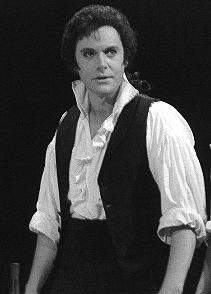




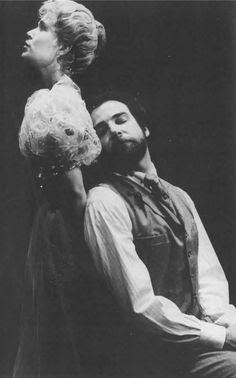
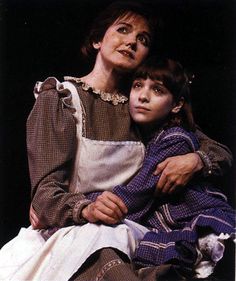
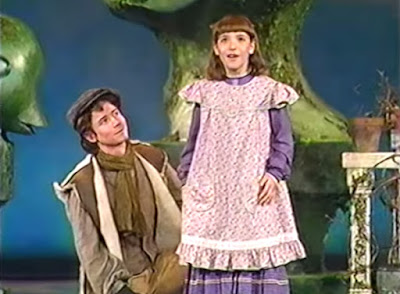

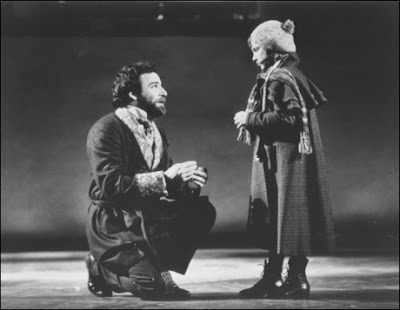




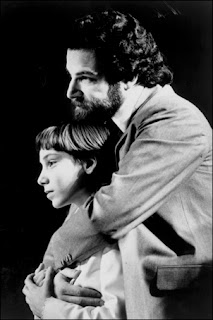


 Singer Mackenzie BourgImpossible Things
Singer Mackenzie BourgImpossible Things



I've never heard of Capstone Press, but these books look great - there is a niche for them, as you say.
Jay-Z and Sarah Palin? That's an eclectic list. This looks like a great find for reluctant and/or struggling readers. Since these books are short, maybe they can compare two subjects.
Interesting approach to biographies for kids. What is the minimum page limit you reference for reports? Is that at your school or more a general standards requirement?
ha! ha! I had the same thought, Jeff!
Jeanne, I'm a public librarian, but I see so many children come in requesting biographies for school assignments with minimum page requirements. I believe it's quite common because there are many publishers that appear to cater to it, publishing very small size books that contain over 100 or 150 pages. It's irked me for years, I even penned a poem about it, "Minimum Rage." http://shelf-employed.blogspot.com/2010/02/minimum-rage.html
Elvis! That would be cool! I really like biographies that I can share with my younger kids, it's so important to their cultural eduction. Thanks for sharing.